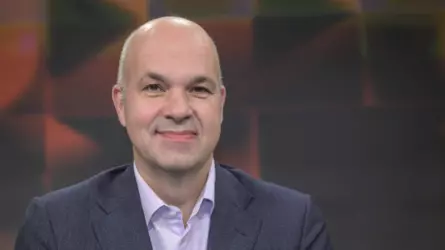Translation by yours truly. Original source at Apollo News here [A]
I'm always using short scale numbering, aka million-billion-trillion, when writing in English, so you don't need to mentally convert from million-milliard-billion

Marcel Fratzscher demands an unconditional climate basic income for people of the global South
At Focus, Marcel Fratzscher published a guest editorial. The occasion was the climate conference at Baku [Azerbaijan]. According to Fratzscher, called a "top economist" by Focus, "one must succeed in making progress in the deciding question of how the global North can finance the protection of climate and nature in the global South." "Economically just as morally" it is mandatory that "mankind" makes use of much more money to tackle climate change.
Fratzscher sees the duty especially in the West. "The overwhelming share of these investments must be made by the richest ten percent, especially the richest percent", the economist said. Fratzscher refers to studies according to which just the emerging and developing countries (without China) are in need of 2.4 trillion euros of investment for climate protection. Almost 1 trillion of that "needs to come from bilateral aid or multilateral institutions".
Referring to economists like Nicholas Stern, Esther Duflo, or Gabriel Zucman, Fratzscher suggests numerous harsh measures. A global tax of, at least, 2 percent on the wealth of billionaires could generate around 250 billion US Dollar of additional tax revenue every year, Fratzscher says. "This is hardly an exorbitant sum, just the opposite: It is a very moderate sum", the economist says.
In addition, the comprehensive plans of Fratzscher call for a global minimum corporate tax of 21 percent. In addition, he demands the enforcement of an excess profit tax for companies "that still gain enormous profits and rents through the sale of fossil energy carriers". Government subsidies for fossil energy carriers need to continue being undone and eventually completely abolished.
But a central point of Fratzscher's ambitious plans is the institution of an "unconditional climate basic income (UCBI)". According to him, it is supposed to be 2 US Dollar per adult per day. In total, that is an annual sum of 500 billion US Dollar paid (overwhelmingly by the West) to the citizens of the global South. "Such an unconditional climate basic income would have many strengths and advantages", Fratzscher says. It would directly reach the most affected people and help them.
Furthermore, Fratzscher explains: "Many experiments with such transfer payments show that people use the money very efficiently for their basic needs and their protection". In addition, the UCBI would "increase the social acceptance for measures to protect the climate and the environment". As an aside, that would also combat global poverty. Not to mention that the unconditional climate basic income would ensure a mobilization of "an enormous economic potential". By the means of these mega transfers - overwhelmingly from the West - "these people would be much better able to work productively", so Marcel Fratzscher says.
I'm always using short scale numbering, aka million-billion-trillion, when writing in English, so you don't need to mentally convert from million-milliard-billion
500 billion euros every year: Fratzscher demands unconditional climate basic income for citizens of the global South

Marcel Fratzscher demands an unconditional climate basic income for people of the global South
At Focus, Marcel Fratzscher published a guest editorial. The occasion was the climate conference at Baku [Azerbaijan]. According to Fratzscher, called a "top economist" by Focus, "one must succeed in making progress in the deciding question of how the global North can finance the protection of climate and nature in the global South." "Economically just as morally" it is mandatory that "mankind" makes use of much more money to tackle climate change.
Fratzscher sees the duty especially in the West. "The overwhelming share of these investments must be made by the richest ten percent, especially the richest percent", the economist said. Fratzscher refers to studies according to which just the emerging and developing countries (without China) are in need of 2.4 trillion euros of investment for climate protection. Almost 1 trillion of that "needs to come from bilateral aid or multilateral institutions".
Referring to economists like Nicholas Stern, Esther Duflo, or Gabriel Zucman, Fratzscher suggests numerous harsh measures. A global tax of, at least, 2 percent on the wealth of billionaires could generate around 250 billion US Dollar of additional tax revenue every year, Fratzscher says. "This is hardly an exorbitant sum, just the opposite: It is a very moderate sum", the economist says.
In addition, the comprehensive plans of Fratzscher call for a global minimum corporate tax of 21 percent. In addition, he demands the enforcement of an excess profit tax for companies "that still gain enormous profits and rents through the sale of fossil energy carriers". Government subsidies for fossil energy carriers need to continue being undone and eventually completely abolished.
But a central point of Fratzscher's ambitious plans is the institution of an "unconditional climate basic income (UCBI)". According to him, it is supposed to be 2 US Dollar per adult per day. In total, that is an annual sum of 500 billion US Dollar paid (overwhelmingly by the West) to the citizens of the global South. "Such an unconditional climate basic income would have many strengths and advantages", Fratzscher says. It would directly reach the most affected people and help them.
Furthermore, Fratzscher explains: "Many experiments with such transfer payments show that people use the money very efficiently for their basic needs and their protection". In addition, the UCBI would "increase the social acceptance for measures to protect the climate and the environment". As an aside, that would also combat global poverty. Not to mention that the unconditional climate basic income would ensure a mobilization of "an enormous economic potential". By the means of these mega transfers - overwhelmingly from the West - "these people would be much better able to work productively", so Marcel Fratzscher says.
